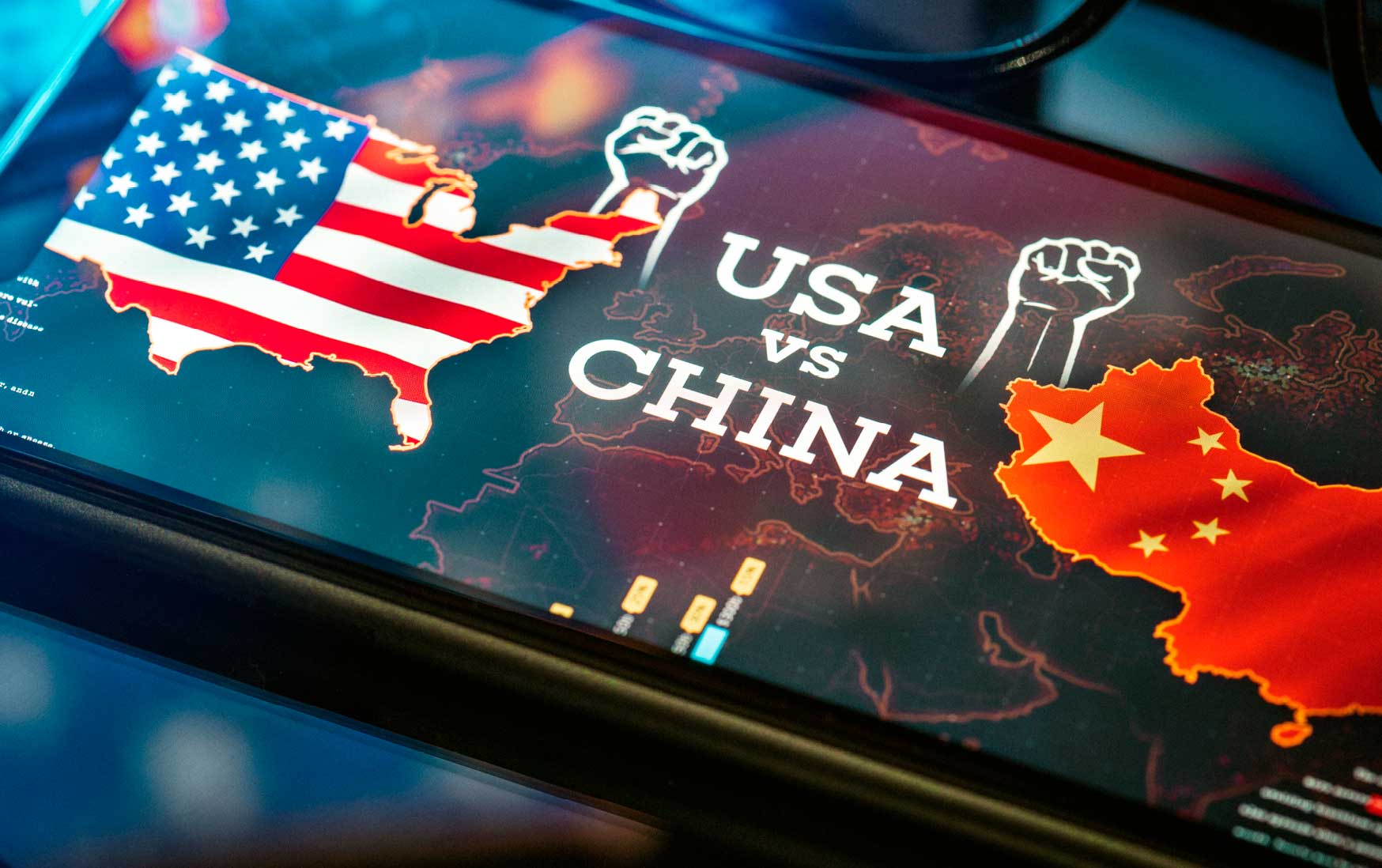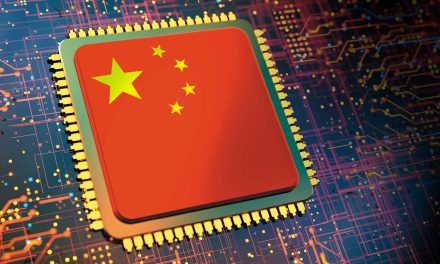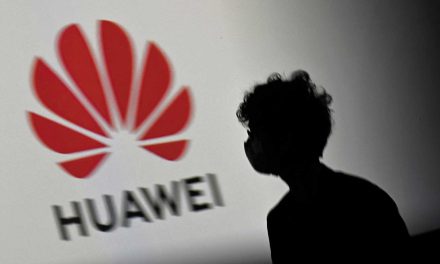In his 2020 speech on his country’s Defence and Deterrence Strategy, France’s President Emmanuel Macron identified three paradigm shifts causing geopolitical tensions across the world: strategic, political and legal, and technological. First, he said, the “global competition between the United States and China is an established strategic fact that will structure all international relations”. Elucidating technology as a paradigm shift, Macron said that “digital technology has become a field of confrontation, and the control of this technology has exacerbated rivalries between powers, which see it as a way to gain a strategic superiority.”
Other global leaders have expressed concerns about the decoupling of US-China technology. Technology decoupling amounts to a separation between technologies originating in the US and China. United Nations Secretary-General Antonio Guterres has noted that the “US-China technology divide could cause more havoc than the Cold War”. For its part, the Eurasia Group considers US-China decoupling in the technology orbit as “the single most impactful development for globalisation since the collapse of the Soviet Union”.

In his foreword to Jon Bateman’s book, US-China Technological “Decoupling”: A Strategy and Policy Framework, Eric Schmidt, the former CEO and chairperson of Google, while acknowledging there is a partial technology separation between the US and China, raises a pertinent question: “How partial should this partial separation be? Would 15% of US-China technological ties be severed, or 85%? Which technologies would fall on either side of the cut line?” There is no direct answer to Schmidt’s question yet, but there is a general agreement that such questions cannot be dismissed with a wave of the hand.

Eric Schmidt, co-founder Schmidt Futures and former chairman of Google. Photo: Patrick T. Fallon/AFP
An emerging reality of US-China technology decoupling is techno-nationalist ideas that depict technology as an arena for interstate struggle rather than a neutral global marketplace. In August 2020, the Trump administration launched the Clean Network Initiative programme to safeguard “American citizens’ privacy and companies’ most sensitive information from aggressive intrusions by malign actors such as the Chinese Communist Party (CCP)”. In return, the Chinese government launched its own global data security initiative.
The outcome of the geopolitical rivalry between the US and China over technology will redefine institutions governing global politics and trade. According to Deutsche Bank, the geopolitical cost of US-China tech rivalry in the ICT sector is around $250 billion a year. Furthermore, the geopolitical impact of a technological Cold War between the US and China could split the world into two halves by a “tech wall” – resulting in two opposing tech regimes. This means countries would have to choose sides between the US and China, and the impact of the “tech wall” on every sphere of life globally may last decades, if not generations.
The fragmentation of the internet into several parts across national borders is called “splinternet”. Some causes of the fragmentation of the internet include data laws (laws and politics); the Application layer (website ranking locality); network interference events, IPv6 adoption (transfer of data between networks), and no proxy (the transfer of data within a local network). These fall into the following categories: nationalising software and regulations, nationalising hardware networks, and nationalising networks. The outcome of US-China technology decoupling will have a bearing on the governance of the internet – and Africa is one of the epicentres of this rivalry.
Hence, this article has sought the views of ICT experts, scholars, and journalists from across Africa on what they see as the implications of US-China technology decoupling on the continent. Put differently, what is the likely effect of US-China technology decoupling on the governance of the internet in Africa? Some of the scenarios that emerged from interviews with experts suggest two likely trends.
First, technology decoupling between the US and China could result in the split of the internet in Africa, resulting in a choice between either the US or the Chinese versions. However, it must be acknowledged that in some instances, African countries could decide to adopt both a Chinese and US version of the internet.
However, experts think it would be better for Africa to develop its own version of the internet without leaning on China or the US, and by doing so adopt a neutral position in the technology rivalry between both global powers. Most people interviewed emphasised Africa should look neither east nor west but rather inwards to develop the infrastructure that will enable it to enjoy some form of independence from both sides of the contest. They argued that Africa should replicate the much-vaunted “we neither look east nor west” mantra of the Cold War era when most African countries remained neutral.
However, the reality remains that the continent has not been concerned about how people use the internet; the internet space in Africa has always been tied to the apron strings of foreign powers. So, it is considered relevant for African leaders to work out a collective bargaining power. In this sense, African leaders need to rediscover themselves and build an Africa that is independent of foreign interventions.

Abdulai Awudu, director of programmes at Ghana’s Multimedia Group.
Abdulai Awudu, the director of programmes at Ghana’s Multimedia Group, argued that African countries should not choose sides but, as the late Kwame Nkrumah admonished, “we neither look east nor west, we only look forward”. For his part, Auwal Alhassan Tata, formerly the secretary-general of the Internet Society, Nigeria, noted that it was time Africa started to develop its own network to cater to the continent. But that, he added, could further fragment the internet.
“Ideally, Africa should take the bull by the horns and start preparing for an African network,” he said. “However, what that means is that we are further fragmenting the internet. We could create our version of the internet but, you know, Africa is not like other continents; there is so much division in Africa. Even if we have an African internet version, you will start seeing a Francophone Africa internet, North Africa, English-speaking Africa, West Africa, and South Africa – and before you know it, it will be so fragmented as if we have a local area network.”
Nanjira Sambuli, a Kenyan digital expert, explained that the “most strategic work we should be doing on the continent is resetting our own rules of engagement” with tech companies, whether “they come from the west or east or outer space”.
However, the difficulty with this view is that African countries have neither the financial capacity nor the political will to embark on massive ICT infrastructure development. Hence, there is the likelihood that African countries will choose between the US and China, or even Russia, if there is a fragmentation of the internet in Africa.
Sambuli noted that “if heads of African governments have to choose sides in the contest for cyberspace, they will side with China because it is easier and has fewer hassles with all things pro-democracy.” However, she added that “if there are any sides to be taken here, the African government has a responsibility to, ideally, choose the side of their people – but they have never been in the business of putting the people first.”

Nanjira Sambuli is a Kenyan researcher, writer, policy analyst and strategist interested in and working on understanding the unfolding, gendered impacts of ICT adoption on governance, media, entrepreneurship and culture.
Unfortunately, Africa does not have continent-wide regulations like the EU’s General Data Protection Regulation (GDPR), which could mediate the implications of US-China technology decoupling in Africa. However, local laws could be activated, but how far they could go for an individual African country is problematic. It remains to be seen whether Africa will adapt, adopt, mediate or choose sides with the US or China in the emerging technology geopolitical rivalry. Whatever choices African countries make have implications for Africa’s fragile democratic processes. It is a long game.
[activecampaign form=1]











